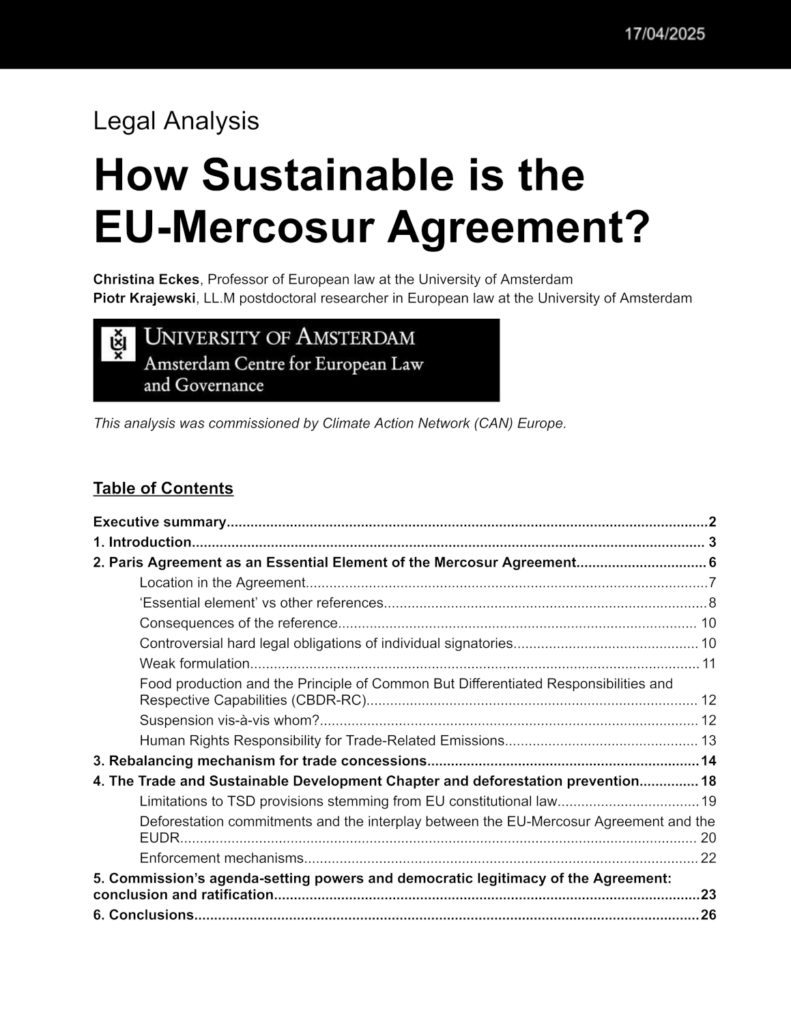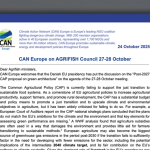The legal analysis of the sustainability of the EU-Mercosur Agreement finds that the agreement has the potential to undermine the EU’s existing commitments to mitigate the climate crisis and stand in the way of green policies adopted in the future. The core issue that emerges from the study is that the EU-Mercosur Agreement is likely to force the EU to contribute to rising global emissions by obliging it to increase trade in emission-intensive goods.
Christina Eckes, Professor of European law at the University of Amsterdam and the author of the legal analysis, said:
“The EU-Mercosur Agreement likely increases trade in emission-intensive products and thus adds to the EU’s trade-related emissions, making it harder for the EU to meet its climate targets. Referring to the Paris Agreement as an essential element does not give climate concerns precedence. The reference is vague and adds little meaning or teeth to already existing international obligations.”
Piotr Krajewski, LL.M. postdoctoral researcher in European law at the University of Amsterdam and the author of the legal analysis, said:
“The provisions on deforestation set out in the Trade and Sustainable Development Chapter of the EU-Mercosur Agreement express potentially conflicting ambitions. While the Chapter outlines specific commitments, they are also likely to result in a weaker application of the Regulation on Deforestation-free Products, vis-à-vis Mercosur countries.”
Audrey Changoe, Trade and Investment Policy Coordinator at CAN Europe, said:
“A worrying conclusion of the legal analysis is that the rebalancing mechanism in the EU-Mercosur deal could actually serve as an additional tool to pressure EU countries into weakening their green regulations under the European Green Deal and cause a regulatory chill. This could further jeopardise the European Green Deal, which is already facing unprecedented attacks with the EU’s deregulatory push rolling back climate regulations, and increasingly under pressure amid Trump’s tariff retaliations.
This should be a clear red line to progressive EU decision makers who will need to approve this deal and are concerned by its sustainability impacts and the erosion of Europe’s sustainability ambitions.“




